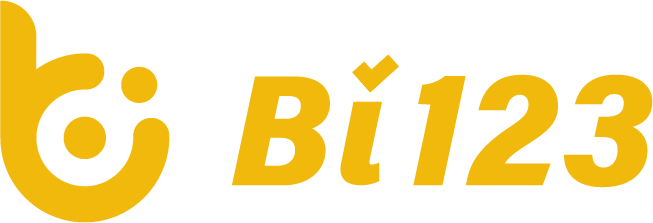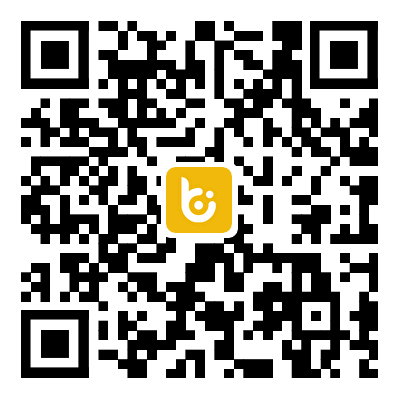
Bitcoin Cash
- #PoW
- #Cryptocurrency
- #Binance BUSD
- 515.534
- $1.49B
- $10.2BRank #18
- 19.79M
- Spot Markets
- Overview
- Market Data
Similar News
More Info- 06-04 10:00
The Binance World Championship Special: Trade $100 Each on Convert, Spot & Futures To Win...
- 06-03 22:00
MiCA Stablecoin Rules Implementation Announcement
- 06-03 10:15
Word of the Day: Test Your Knowledge on Life in Binance to Earn Binance Points...
- 05-31 15:00
Updates on Minimum Order Size for Spot and Margin Trading Pairs (2024-06-07)
- 05-30 21:28
Binance Futures Will Launch USDT-Margined TURBO Perpetual Contract With Up to 50x Leverage
Market Signal
More InfoCryptocurrency Calendar

NO DATA
What is Bitcoin Cash?
Bitcoin Cash is a [peer-to-peer] electronic cash system that aims to become sound global money with fast payments, micro fees, privacy, and high transaction capacity (big blocks). In the same way that physical money, such as a dollar bill, is handed directly to the person being paid, Bitcoin Cash payments are sent directly from one person to another.
As a permissionless, decentralized cryptocurrency, Bitcoin Cash requires no trusted third parties and no central bank. Unlike traditional fiat money, Bitcoin Cash does not depend on monetary middlemen such as banks and payment processors. Transactions cannot be censored by governments or other centralized corporations. Similarly, funds cannot be seized or frozen — because financial third parties have no control over the Bitcoin Cash network.
Bitcoin Cash (BCH) is an alternative to the oldest and most traded cryptocurrency - [Bitcoin (BTC)], only the BCH network is much faster and cheaper. In 2017, BCH developers modified the BTC code, releasing their own version of the software and a full-fledged competitive product, which split Bitcoin into two blockchains: Bitcoin / Bitcoin Cash, and consecutively, two assets - BTC / BCH. Bitcoin Cash is a clear result of a hard fork in blockchain. Moreover, another hard fork, which divided Bitcoin Cash into two parts: Bitcoin ABC and Bitcoin SV, took place in the fall of 2018.
There are several distinctive features that separate BCH from the origin. The main one remains about the block size. Blocks in the BCH blockchain can be larger, which means that more transactions can be processed at a time, so that the additional space helps to avoid higher fees. However, since the potential block size is larger, storage \u0026 audit become more costly and users may find it troublesome to download a copy of the blockchain.
From the technical perspective, Bitcoin Cash is very similar to the Bitcoin algorithm, namely: both projects have a hard cap of 21 million coins, and also use [Proof-of-Work] (PoW) consensus framework and nodes to verify transactions. Thus, traders can consider BCH as a hedging tool, investing in which may save them some risk.
On the plus side, due to the larger block size, Bitcoin Cash (BCH) works faster and has lower transaction fees, which makes BCH a better option for small everyday transactions. Furthermore, Bitcoin Cash supports [smart contracts] and ecosystem apps like CashShuffle, a coin mixing protocol, and CashFusion, a privacy-enhancing solution for the Bitcoin Cash network. These technologies have their pros and cons: thanks to CashFusion, it becomes extremely difficult to trace the path to the user's assets, however one should bear in mind that commissions are charged for each mixing, so making frequent mixed transactions may have a cost.
Bitcoin Cash provides a platform for [Peer-to-Peer] (P2P) payments between individuals, with the average transfer fee being as low as $0.01, and the settlement is instant. This means that Bitcoin Cash is suitable for money transfers, international trade, everyday transactions and microtransactions. In addition, Bitcoin Cash supports economic freedoms by providing an alternative form of money, protected against confiscation, any other forms of censorship and devaluation (due to inflation).
Bitcoin Cash is a decentralized network where users influence the development of the protocol. One key attribute is fixed in the code: the maximum supply of BCH is capped at 21 million coins, which is likely to remain so.
Therefore, the key features of Bitcoin Cash include the following:
* Transactions are recorded on the blockchain, the ledger is updated at regular intervals, which allows users to track the history of ownership and eliminate fraud threats promptly.
* Bitcoin Cash is an open network that can be used by anyone for free and uncensored, identities are not attached to transactions.
* Nodes that follow a set of rules (aka protocol) are responsible for the longevity of stored information. The protocol itself can be upgraded with the help of ecosystem participants, but that requires a high degree of consensus among them.
* All transactions that have ever been recorded on the blockchain are not subject to change.
* The Proof-of-Work (PoW) mechanism contributes to network security.
* Bitcoin Cash is a hard asset with the maximum supply of 21 million $BCH.
* Bitcoin Cash guarantees its users fast, affordable, and most importantly - reliable transactions without being tied to any location, which makes it a worthy replacement for existing payment networks.
What Is Bitcoin Cash Used for?
Bitcoin Cash combines gold-like scarcity with the spendable nature of cash. With a limited total supply of 21 million coins, Bitcoin Cash is provably scarce and, like physical cash, can be easily spent. Transactions are fast with transaction fees typically less than a tenth of a cent. Anybody can accept Bitcoin Cash payments with a smartphone or computer.
Bitcoin Cash has various use cases. In addition to peer-to-peer payments between individuals, Bitcoin Cash can be used to pay participating merchants for goods and services in-store and online. Very low fees enable new micro-transaction economies, such as tipping content creators and rewarding app users a few cents. Bitcoin Cash also reduces the fees and settlement times for remittances and cross-border trade. Other use cases include tokens, simplified smart contracts, and private payments with tools such as CashShuffle and CashFusion.
Is Bitcoin Cash different from Bitcoin?
In 2017, the Bitcoin project and its community split in two over concerns about Bitcoin’s scalability. The result was a hard fork which created Bitcoin Cash, a new cryptocurrency considered by supporters to be the legitimate continuation of the Bitcoin project as [peer-to-peer electronic cash](http://bch.info/bitcoin.pdf). All Bitcoin holders at the time of the fork (block 478,558) automatically became owners of Bitcoin Cash. Bitcoin, which was invented by the pseudonymous [Satoshi Nakamoto] remains a separate cryptocurrency.
Unlike Bitcoin ([BTC]), Bitcoin Cash aims to scale so it can meet the demands of a global payment system. At the time of the split, the Bitcoin Cash block size was increased from 1MB to 8MB. An increased block size means Bitcoin Cash can now handle significantly more transactions per second (TPS) while keeping fees extremely low, solving the issues of payment delays and high fees experienced by some users on the Bitcoin BTC network.
As of October 2021, Bitcoin Cash has a block size of 32MB, compared to Bitcoin’s block size of 1MB.
How do you mine Bitcoin Cash?
[Mining] is the process in which new Bitcoin Cash transactions are confirmed and new blocks are added to the Bitcoin Cash blockchain. Miners use computing power and electricity to solve complex puzzles. By doing so, they gain the ability to produce new blocks of transactions. If one of their blocks is accepted by the network, the miner, or mining pool, earns a [block reward] in the form of newly-issued Bitcoin Cash.
Mining is highly competitive. As the price of Bitcoin Cash in the marketplace rises, more miners are incentivized to bring more [hash rate] into the ever-increasing miner competition to produce blocks and have them accepted by the Bitcoin Cash network. More miners make the network more secure by increasing and distributing the hash rate. This prevents a single miner from having control over the network.
Anyone can mine Bitcoin Cash. Mining requires specialized hardware called mining equipment, which can either be bought or rented. Miners also need to run a full node software (with the majority of miners currently running BCHN) to build blocks and connect to the rest of the Bitcoin Cash network. Mining can be done independently but miners often pool their hash rate together and share proportionally in the earned block rewards.




